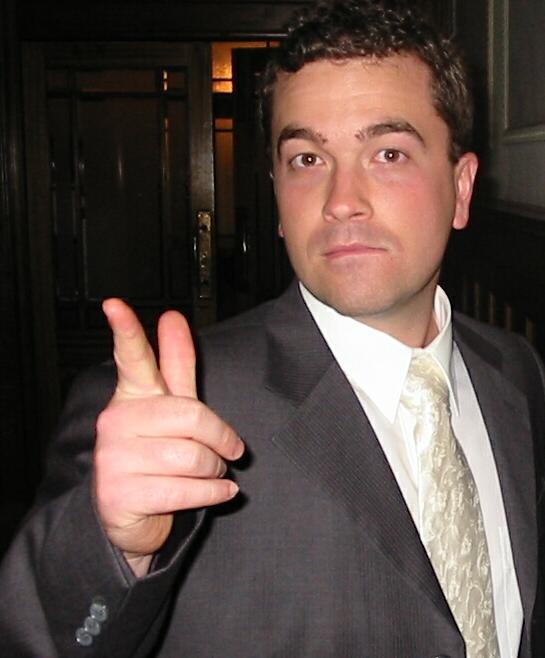
Earlier today we had our Shapers of Contemporary Theology exam. This was the course where we were able to read ample sections from Germans like Barth and Rahner, Pannenberg and Moltmann. We started the course by looking at Schleiermacher, the guy known as either "the Father of modern theology" or the "Father of Protestant Liberalism", depending on whether you think he's a goody or baddy (and, I guess, whether you think Protestant Liberalism is a good or bad thing). My own tradition has set him up as a baddy, so what a surprise to read him saying things like:
Christ is distinguished from all others as Redeemer alone.
Sounds fairly evangelical to me.
Of course, his view of the nature of Christ's redemption may be deficient:
Jesus is the Founder of a religious communion simply in the sense that its members become conscious of redemption through him (Consciousness? Surely this is not the sum total of what it's all about).
But he does maintain the centrality and necessity of Jesus.
So this got me thinking...Is Schleiermacher a Christian? Often we think "No way, he's a liberal", but as I read him I see a guy who responded to Jesus and only Jesus, which is the response called for in the Gospels. Now we might argue that he is responding to a different Jesus than the one he ought to respond to and the one we ought to preach, but I think his heart was in the right place, and if God judges the heart...
So a question: How much do you need to get right to be a Christian? To put it another way, I heard one MTC lecturer say that "Theologian X is wrong. He'll be in heaven, but he's not an evangelical" So if he'll get there in the end why are we bringing him down? And is "being in heaven/the age to come" the right way to think about this in any case?
Love to hear your thoughts.

5 comments:
Barth had some great things to say in Evangelical Theology on this very point, I recall. I don't, however, recall what they were...
..apart from very powerfully making the point that theologians (i.e. all of us) will find our theology facing the judgement of God. To escape as through the flames sounds painful!
Hi Marty,
Long time, no talk.
I read your article in Societas and that prompted me to check out your blog. Nicely done.
Thankfully, getting into heaven won't be as easy or as hard as passing a BD exam at MTC.
Also, thankfully, Sydney Anglicans won't be the only ones up there.
It's grace.
I'd like to think that God uses what I teach for his mercy not his judgment.
Regards, Gav Poole
hey marty,
I've been thinking the same things during the course actually.. Schleiemacher didn't do it for me so much, mainly because he didn't actually seem (in what we read anyway!) to think the cross was central and important..
During my BArth essay, you kind of find people commenting on Barth's view of scripture as bad... yet when you read his sermons, he just preaches from the bible, doctrinaly, but seemed pretty good stuff to me.. better than schlm anyway...
I think after reading him I appreciated that everyone's got their issues really.. and writing has got to be a thankless task - especially if you have something to say - you got to write a again and again to explain it..
I read another guy recently from about 1900 at trinity in dublin..
he basically said, 'i inted to say nothing new in this book, but say it in an interesting way'.. I'd be happy if people said tht when I preached...
Andrew Bruce
Gav Poole ... yes it's been a while, too long infact. How's that texas spicy rub going? HaHa! Say hi to Bron and the kids.
Andrew: Don't worry, 'interesting' would be an understatement. 'Entertaining' would be apt.
Byrone: Didn't Barth say everyone will be in heaven? ;)
Isn't there a story something along the following lines? Whitfield was asked by a journalist whether he would see Wesley in heaven (the former a calvinist disagreeing strongly with the latter an arminian). Whitfield responded, 'I fear not. I fear he will so much closer to the Lord than I.'
Of course that is my recollection of the story and I make no comment on the theology of either, but perhaps the story is helpful.
To twist the knife a little more, will we see Arius in heaven?
Post a Comment